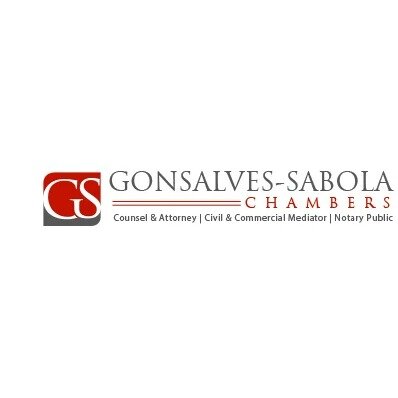Best General Litigation Lawyers in Bahamas
Share your needs with us, get contacted by law firms.
Free. Takes 2 min.
Or refine your search by selecting a city:
List of the best lawyers in Bahamas
About Litigation Law in Bahamas
The Bahamas operates under a common law system, which means that litigation-a process to resolve disputes in court-is an available avenue for individuals and businesses seeking legal remedies. Litigation in the Bahamas involves civil matters, where one party seeks to enforce or defend a legal right, and criminal matters, where the government prosecutes an alleged crime. The legal proceedings are structured, following established rules of procedure and law, and cases are typically heard in various courts such as the Magistrate's Court, the Supreme Court, and the Court of Appeal, depending on the complexity and value of the matter.
Why You May Need a Lawyer
There are several situations where individuals and businesses might require the expertise of a lawyer for litigation purposes:
- Business Disputes: Disagreements over contracts, partnerships, or shareholder issues can necessitate legal intervention.
- Property and Real Estate Issues: Conflicts over property ownership, land disputes, or lease disagreements often require legal resolution.
- Personal Injury Claims: If you've been injured due to someone else's negligence, a lawyer can help you pursue compensation.
- Family Law Matters: Divorce, custody battles, and estate disputes can involve complex litigation.
- Employment Disputes: Issues such as wrongful termination or discrimination claims might need legal proceedings.
- Criminal Defense: If you are accused of a crime, legal representation is crucial for your defense.
Local Laws Overview
The legal framework in the Bahamas is influenced by English common law, with local variations and statutes providing additional guidance. Key aspects relevant to litigation include:
- Civil Procedure: Governed by the Civil Procedure Rules, these dictate how civil cases are filed, conducted, and resolved.
- Statutes of Limitations: Specific time limits within which legal action must be taken, varying based on the nature of the case.
- Costs and Fees: The losing party may be required to pay part or all of the winning party's legal costs under certain conditions.
- Equity and Trusts: The Bahamas is a leading jurisdiction for trust litigation, given its developed trust laws.
- Property Laws: These laws affect litigation over real estate and involve the Conveyancing and Law of Property Act, among others.
Frequently Asked Questions
What is the first step in initiating litigation in the Bahamas?
The first step is typically filing a writ of summons or statement of claim in the appropriate court, outlining the nature of the dispute and the relief sought.
How long does the litigation process take?
The duration varies widely depending on the complexity of the case, the court's schedule, and the parties' willingness to settle. It can range from several months to several years.
Can I represent myself in court?
While you have the right to represent yourself, it's generally not advisable due to the complexity of legal procedures and the potential consequences of mishandling your case.
What are alternative dispute resolution (ADR) options?
ADR methods like mediation and arbitration offer less formal, often quicker, and cheaper ways to resolve disputes outside court.
What costs are involved in litigation?
Costs include court fees, attorney fees, and possibly paying the other party's costs if you lose the case. Fee structures can often be negotiated with your lawyer.
How is a judgment enforced?
If a court rules in your favor, there are several mechanisms to enforce a judgment, including garnishing wages or placing liens on property.
What happens if I lose my case?
You may be required to pay the opposing party's legal costs and might choose to appeal the decision, provided there are grounds for appeal.
Can foreign nationals engage in litigation in the Bahamas?
Yes, foreign nationals can engage in litigation but might face additional procedural requirements, such as posting a security for costs.
What role does the Court of Appeal play?
The Court of Appeal reviews decisions from lower courts to ensure the correct application of law and procedure and can uphold, reverse, or modify those decisions.
Is settlement possible during the litigation process?
Yes, parties can negotiate a settlement at any point during the litigation process, often encouraged by the court to avoid prolonged proceedings.
Additional Resources
For further information and assistance, consider consulting the following resources:
- The Bahamas Bar Association: Provides resources and directories for finding licensed attorneys.
- The Judicial Department of the Bahamas: Offers information on the court system and legal procedures.
- Legal Aid Organizations: Nonprofit organizations that provide legal assistance to those unable to afford it.
- Government Publications: Access to various legal documents and statutes relevant to litigation.
Next Steps
If you require legal assistance with litigation in the Bahamas:
- Identify Your Needs: Consider the nature of your dispute and the legal aid you require.
- Consult a Lawyer: Seek advice from a qualified attorney who specializes in the relevant area of law.
- Gather Documentation: Compile all relevant documents, contracts, and evidence related to your case.
- Explore ADR: Discuss with your lawyer the possibility of mediation or arbitration as an alternative to litigation.
- Follow Legal Advice: Adhere to your lawyer's recommendations to navigate the complexities of the legal system.
Lawzana helps you find the best lawyers and law firms in Bahamas through a curated and pre-screened list of qualified legal professionals. Our platform offers rankings and detailed profiles of attorneys and law firms, allowing you to compare based on practice areas, including General Litigation, experience, and client feedback.
Each profile includes a description of the firm's areas of practice, client reviews, team members and partners, year of establishment, spoken languages, office locations, contact information, social media presence, and any published articles or resources. Most firms on our platform speak English and are experienced in both local and international legal matters.
Get a quote from top-rated law firms in Bahamas — quickly, securely, and without unnecessary hassle.
Disclaimer:
The information provided on this page is for general informational purposes only and does not constitute legal advice. While we strive to ensure the accuracy and relevance of the content, legal information may change over time, and interpretations of the law can vary. You should always consult with a qualified legal professional for advice specific to your situation.
We disclaim all liability for actions taken or not taken based on the content of this page. If you believe any information is incorrect or outdated, please contact us, and we will review and update it where appropriate.
Browse general litigation law firms by city in Bahamas
Refine your search by selecting a city.
















